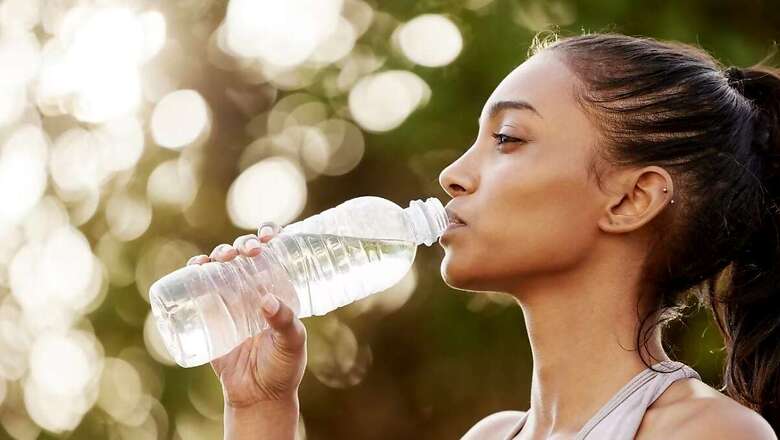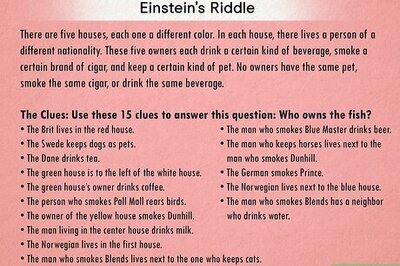
views
According to WebMD, there is no method to determine how much water you should drink daily. But drinking 8 glasses of water a day is a good habit to get into. However, the amount of water each person drinks varies depending on their environment, exercise, diet, general health and conditions such as pregnant or breastfeeding women. Let us take a look at the signs that you are drinking too much water
1) Frequent trips to the toilet – If you have to go to the toilet more often than usual to urinate, it means that your body has increased water content. Generally, it is normal to urinate 6 to 8 times a day, but urinating more than that is not good.
2) Drinking water when not thirsty – Repeatedly drinking water when not thirsty is a sign of excessive alcohol consumption. You can only avoid drinking too much water if you know your body’s needs. Your body will signal you when you need to drink water. This is the body’s way of fighting dehydration. Thirst is the body’s response to dehydration.
3) Nausea – When you drink too much water, you may experience nausea and vomiting. When your body has too much water, your kidneys also cannot excrete the excess fluid. This way, water builds up in the body, which can lead to problems like vomiting, nausea and diarrhoea.
4) Change in urine colour – If you drink too much water and become more dehydrated, you may notice a change in urine colour. Your urine will then appear pale yellow to tea-colored. This is due to the increase in water content in the body.
Drinking too much water can affect brain function. It occurs when cells (including brain cells) contain too much water which causes them to swell. When brain cells become inflamed, pressure is created in the brain. In this situation, confusion, drowsiness and headaches may occur. When this pressure increases, it can lead to conditions like high blood pressure, bradycardia or low heart rate. When overhydration occurs, the electrolyte sodium is mainly affected, resulting in a condition called hyponatremia.

















Comments
0 comment